Korean Drama “D.P. Season 2” is set against the backdrop of the South Korean military police’s pursuit of deserters, and it explores the issue of bullying in Korean military camps. An Jun-Ho, a private second class in the South Korean Army who is currently serving, suddenly becomes a member of the Deserter Pursuit team (D.P.) one day.
Throughout his journey chasing after deserters, he experiences various stories. “D.P. Season 2” tells the tale of Jun-Ho and Ho-Yeol from the Deserter Pursuit team as they continue to collide with an unchanged reality and face unreasonable circumstances that unfold into an unfinished story.”
⚡ Spoiler Alert ⚡
⚡ Spoiler Alert ⚡
⚡ Spoiler Alert ⚡
‘D.P.Season 2’ Review & 5 highlights, Explained
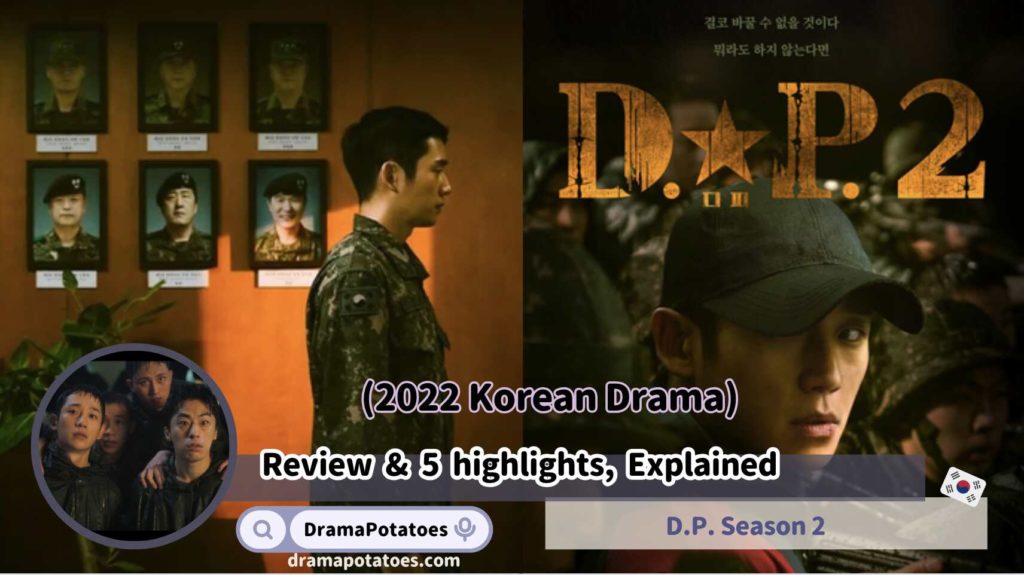
‘D.P.Season 2 review’: You are responsible for living to make a change.
I really like how the writer in “D.P.Season 2” uses An Jun-Ho’s perspective and some traumatic imaginary scenes to portray his guilt towards Suk-Bong, as well as the traumas that Han Ho-Yeol has faced during his time in the D.P. team. In this season of “D.P.”, the writer explores whether these two characters can do something to help deserters.
I really appreciate how every time they encounter a deserter, their first words are always “I’m here to help you.” Although this may sound superficially dismissive, it carries a powerful message. To someone who doesn’t understand, it may seem like a lie, but to someone who does understand, it represents empathy.
I admire how the writer in “D.P.Season 2” uses the inner turmoil of these two characters to explore “how to change.”
In An Jun-Ho’s heart, he carries Suk-Bong’s hope for him to change. This expectation gradually ferments within An Jun-Ho’s heart. In episode four of “D.P.Season 2,” we see An Jun-Ho suggesting not arresting Jang Sung-Min anymore. This statement signifies that there is already a prelude within him wanting to make a change. Similarly, Han Ho-Yeol feels guilty for not being able to help Kim Ru-Ri in time and directly apologizes to her. This is already a form of change. Additionally, Han Ho-Yeol regrets hurting Jang Sung-Min and shows signs of inner turmoil.
“D.P. Season 2” shows that the D.P. team is no longer just capturing deserters everywhere, but rather understanding the story of each deserter. Gradually, the phrase “I am here to help you” becomes more powerful. However, I feel that it is difficult for “D.P. Season 2” to fully demonstrate how An Jun-Ho changes the twisted culture of bullying within the military hierarchy because he is a new recruit and does not hold a high position. The only change he can make is to “help when possible.” In the plot, An Jun-Ho mentions to Mun Yeong-Ok that he feels sad about chasing people instead of being chased himself.
An Jun-Ho and Han Ho-Yeol experience each deserter’s story in a very personal way. I quite like a question raised by Han Ho-Yeol: “If we don’t capture him, will it really help him?” Through Jang Sung-Min’s story in Episode 3 of “D.P. Season 2,” we see that he has lived his whole life without freedom, constantly suppressing his fear of exposing his true identity. I think when Han Ho-Yeol witnesses Jang Sung-Min tragically dying, it seems like another unanswered question for him.
This echoes what Park Fan-Gyu says in Episode 6 of “D.P.Season 2,” where An Jun-Ho has been tirelessly searching for an unresolved answer since Shin Woo-Suk’s death incident – this unresolved answer being what An Jun-Ho should do as part of the D.P.team because each deserter has their own tragic story.
At the same time, it also reflects back to ten months ago when if Han Ho-Yeol had brought Jang Sung-Min back then, Jang Sung-Min wouldn’t be living in fear every day now; however, because Han Ho-Yeol didn’t bring Jang Sung-Min back ten months ago, Jang Sung-Min remains trapped in his identity and dies tragically with fear. Is this helpful for Jang Sung-Min? The writer of “D.P.Season 2” presents the internal struggles of An Jun-Ho and Han Ho-Yeol through two similar tragic consequences, but they still cannot find the answer to “how to change.”
Originally, I thought that in “D.P.Season 2,” the screenwriter might have An Jun-Ho or Han Ho-Yeol do something to resist within the military. However, I quite like the direction of Kim Ru-Ri’s case and the involvement of the Human Rights Center. It creates pressure on Gu Ja-Woon and becomes a glimmer of hope for change.
Shin Hye-Yeon said, “Kim Ru-Ri is indeed the culprit in this case, but what about the role of the country? Both victims and perpetrators are part of the national system. The country is also an accomplice, a co-conspirator. The country has made mistakes and should take responsibility.” By utilizing the authority and power held by the Human Rights Center, An Jun-Ho truly becomes someone who can bring about change; however, this journey is undoubtedly challenging.
When he was being bullied, why did you just stand by? Shin Hye-Yeon mentioned that both perpetrators and victims exist within the system, so even the country is complicit as an accomplice. In Episode 5 of “D.P.Season 2,” An Jun-Ho recalls when Shin Hye-Yeon once asked him why he stood idly by.
The fifth episode dedicates its entirety to depicting An Jun-Ho’s dilemmas and his quest for self-redemption because he too belongs to this system. His lack of action also fills him with guilt. I really appreciate what Shin Hye-Yeon said: “Even if you strike a rock with an eggshell, it will leave a mark; eggs will stick to rocks.” Her point is that even small changes without immediate results still possess transformative power.
However, the path for An Jun-Ho to make changes as a screenwriter was arduous because he was the only one who saw the confidential content on the USB drive. In Episode 5, An Jun-Ho said, “If things can only be this way, then who should bear the responsibility?” Why did the screenwriter choose An Jun-Ho to take on this burden?
Throughout his journey, An Jun-Ho could only be a low-ranking soldier. This was his only way to bring about change. I believe he never forgot what Suk-Bong expected of him and his guilt over Shin Woo-Suk’s death as a deserter in the past. As someone who is closest to bullying and understands that it is the root cause of all deserters’ tragedies,
An Jun-Ho is indeed best suited to play a role in bringing about change through such confrontations. I think what An Jun-Ho wants is redemption within himself; he no longer wants to be someone who “ignores without taking action” (in fact, Park Ji-seok, Han Ho-Yeol, Park Fan-gu, and Seo Eun are all like this in the end – they don’t want to become accomplices who go against their own conscience).
In “D.P.Season 2,” some key characters find themselves in similar situations where they seek redemption and moral boundaries within themselves. I believe this unresolved answer is what these characters have been searching for since “D.P.Season 2” began.
Park Ji-seok once said: “There shouldn’t at least be soldiers like me who witness someone slowly dying before their eyes but just stand by waiting for orders from superiors.” Suk-Bong, Kim Ru-Ri, Jeong Hyeong-Beom, Na Jung-Seok – they all ended up in military service because they wanted to protect their country but suddenly became killers.
Doesn’t the country bear any responsibility? The screenwriter brilliantly designed the atmosphere in the courtroom scene at the end of “D.P.Season 2,” using it to tie up many loose ends. They exposed how facts in the military are distorted and covered up, revealed the existence of hierarchical bullying within the military, depicted how soldiers find themselves trapped in this hellish environment, and portrayed just how painful it is for individuals’ moral compasses to be hijacked by their ranks within this system.
D.P.Season 2 review: Nothing has changed here, there will never be an end to it.
The depiction of military bullying in “D.P.Season 2” always gives me a heavy and suffocating feeling. The second season perfectly pieces together the hierarchical system in the military through comparative fragments. This is something I appreciate about “D.P.Season 2” because in the first season, we have already seen that many of Suk-Bong’s incidents were related to military bullying.
Therefore, in “D.P.Season 2,” the screenwriters cleverly continue to portray this pervasive culture of bullying through fragmented scenes, emphasizing that military bullying has become deeply rooted within the environment. It’s like what Park Fan-gyu himself mentioned about being beaten every day when he was a low-ranking officer at first, and even now that he has reached his current rank, he still experiences bullying and beatings.
In “D.P.Season 2,” Kim Ru-Ri’s shooting incident is a darker continuation from the first season. It left a deep impression on me when even Huh Ki-yeong himself said to An Jun-Ho, “Here, anyone can do it at any time, including myself.” I think it was very clever of the screenwriters to use unfortunate events happening in different units to connect and highlight the serious issues within the entire military ecosystem.
The first season focused on Suk-Bong’s unit incidents while “D.P.Season 2” expands upon similar incidents occurring again within Suk-Bong’s unit but also extends to include deserters. Clearly, the screenwriters wanted to amplify Suk-Bong’s case so that viewers understand it is not an isolated incident or coincidence; there will be more cases like Kim Ru-Ri’s happening as well.
Another notable scene is when Huh Ki-yeong hands over Kim Ru-Ri’s information to An Jun-Ho and specifically tells him: “Here, anyone can do it at any time, including myself.” When Huh Ki-yeong says this, it carries an infinite sense of heaviness and depression.
The writers of “D.P.Season 2” cleverly use different units’ Huh Ki-yeongs to comment on Kim Ru-Ri’s character, creating a poignant moment. It is like when Kim Ru-Ri deliberately watches the news about Suk-Bong being reported before he fires his gun. By piecing together these fragmented scenes, the screenwriters are effectively telling the audience that these unfortunate events do not only happen in specific units but throughout the entire Korean military.
There have been unfortunate cases like deceased Suk-Bong, now reaching a critical point with “Kim Ru-Ri,” and there are individuals like “Huh Ki-yeong” silently suppressing their anger. In the future, countless more individuals like them will emerge.
(In episode 3 of “D.P.Season 2,” the boss cat mentioned that even after fifty years, he still remembers the hellish experience in the military and asks if things haven’t changed until now? This implies that over such a long period of time, this bullying hell has never been altered.)
In the finale of “D.P. Season 2,” Park Bum-gu takes full responsibility for the USB incident and goes to jail. But when he says, “Otherwise, would it be a loss? I’ll win next time,” I don’t know how everyone feels about this ending, but personally, I think it’s not bad.
It’s quite realistic because the writer emphasizes that the deep-rooted problem of bullying in the military cannot be easily eradicated. This issue has persisted for over fifty years and cannot be changed or overturned by just one incident. It’s like what Shin Hye-Yeon said, “Can’t you break a rock with an egg? The egg will also stick to the rock.” Each sacrifice in tragic cases is a small force for change. In the end, everyone’s power to say “I have to do something” will eventually subvert things.
D.P. Season 2 review: Have to do something to make a change (when the “prey” becomes the “predator”).
In “D.P.Season 2,” I find the character Kim Ru-Ri, a deserter, to be very complex. He is involved in a larger-scale case following the Suk-Bong incident. This is different from the first season because in “D.P.Season 2,” Kim Ru-Ri directly rebels within the military and does so in a powerful way.
In one scene, Kim Ru-Ri livestreams his grievances about his experiences in the military, which is truly heart-wrenching. However, I really appreciate this direct confession to the outside world as he uses his own strength to express his frustrations and anger.
The writer cleverly portrays the despair of abuse victims who cannot seek help within the military. Kim Ru-Ri’s mother mentions that her son was bullied in the military, indicating that she knows about it. During his livestream, Kim Ru-Ri also says, “The officers all know but let them be.” This shows just how helpless he feels within the military.
It also echoes why Seo Kyung-yeol tells An Jun-Ho, “Not everyone helps others like you do.” This implies that there was no one like An Jun-Ho to assist Kim Ru-Ri and at the same time delves into another layer of depth with Han Ho-Yeol’s self-blame. In the past investigation of Suk-Bong’s case, Han Ho-Yeol discovered that Kim Ru-Ri was being bullied but didn’t take further action at that time which led to him enduring until now.
“I thought I would die so I shot back; I won’t let you bully me anymore.” From being preyed upon initially to becoming a predator now – what an intense transformation for Kim Ru-Ri! It reflects such desperate frustration and injustice that can turn someone into a demon.
This resonates with Park Joo-seok’s statement at the end of “D.P.Season 2,” “They came to the military to protect their country but ended up becoming killers.” This metaphorically suggests that the military environment is the root cause of turning someone into a demon.
‘D.P.Season 2 review: Military rank bullying is ignored = Senior officers tacitly approve of rank bullying.
Seo Eun and Oh Min-U deliberately suppressed the problems that occurred in the military. Were they unaware or intentionally turning a blind eye? The answer seems obvious. In “D.P.Season 2,” it is clear from the beginning that Oh Min-U asks Park Fan-Gyu to simply sign the report, even though it obviously contradicts the facts. The report states that Suk-Bong had a mental illness, effectively shifting all responsibility onto him, despite his already being deceased.
This includes Seo Eun’s emphasis during the press conference that Kim Ru-Ri was an aggressor, leading the public to believe that Kim Ru-Ri’s personal issues harmed innocent comrades. It is evident that Seo Eun deliberately portrayed Kim Ru-Ri as someone disliked by society.
The underlying purpose behind this is undoubtedly to cover up bullying issues within the military. From “D.P.Season 2,” we can see how many truths and secrets are concealed, including Suk-Bong’s case. It is because of this indifference that problems within the military can never be seen or resolved; it follows a theory of making problems disappear rather than proposing solutions.
Cleverly, in “D.P.Season 2,” the screenwriter presents us with the fundamental source of these issues in a macroscopic way, showing us how ranks within the military oppress one another. I appreciate this design because through various characters from different ranks and their choices, we explore why they make such decisions – ultimately stemming from pressure exerted by higher-ups: firstly, Park Fan-Gyu being asked by Oh Min-U to shift blame onto Suk-Bong who has already passed away; secondly, Seo Eun being instructed by superiors to handle Kim Ru-Ri directly as part of her handling process.
This also explains why Gu Ja-Woon says: “If you want to desert your post, just leave camp. Why shoot? Why not end it all?” This reveals that Seo Eun cannot fulfill the demands of Park Fan-Gyu and Park Ji-Se’s requests because she is being oppressed by her superiors.
I think the way the screenwriters designed “making changes” in “D.P.Season 2” is very delicate and meticulous. Because when viewers watch Episode 3 of “D.P.Season 2”, they may feel like there hasn’t been much change yet, and many things are not something that characters who want to resist can easily accomplish.
However, upon further reflection, the reason why the screenwriters designed it this way is because this subculture of hierarchical bullying within the military is deeply ingrained. The opponents (Gu Ja-Woon and Oh Min-U) have high ranks and cannot act freely; they are difficult to deal with. In the military, if your rank is too low, you will quickly be crushed like an ant.
The screenwriters’ design for “how to make changes” is subtle and emphasizes the fundamental solution to bullying in the military: getting rid of those at the highest positions who cover up and distort the truth. By making changes starting from those at higher positions, complaints and pleas from below might be taken seriously. This is also why layer by layer, characters gradually choose to stand up against it. They are all small forces, but if they continue to turn a blind eye, then things will truly remain as they are without any slight change. The process of “change” is arduous.
From Episode 4 of “D.P.Season 2,” when Gu Ja-Woon deliberately sets a trap for Park Jisoo so that he learns about his beloved junior being killed by landmines due to bullying, it gives a strong warning: “We want you to know that you can’t change anything; don’t try anything funny.”
The screenwriters let us know that in the military, regardless of rank, anyone who displeases their superiors could be set up at any time to cover up the truth. Gu Ja-Woon’s character represents someone who can do whatever they want and manipulate the truth only if they are at the top of the hierarchy, while those below, no matter how much they want to resist, are just being manipulated in their palms.
In Episode 4 of “D.P.Season 2,” I felt that the screenwriters showed viewers the “helplessness forced upon professional soldiers that cannot be changed.” For example, with Park Bumsoo, he has a family, so he must have this job. But in order to survive in his work, he must “obey.” Through what Park Bumsoo and Park Jisoo experience, the screenwriters expand the tragedy of “military bullying” onto other characters as well. They also let us know that bullying is not just physical but also various forms of oppression based on rank.
D.P. Season 2: What do we see as a outsider?
What I saw was a filtered version of reality, a result that had been beautified. In “D.P.Season 2,” there were two segments that were live-streamed on the internet. The writer silently used these scenes to present the “ugly and harsh reality.”
Kim Ru-Ri’s livestream revealed all the truths and facts without any embellishment, allowing the public to see the closest side of deserters without any distortion. On the other hand, Han Ho-Yeol directly livestreamed from the sniper scene, showing everyone how Kim Ru-Ri was being surrounded and even saying, “This way they won’t dare to shoot.” This statement subtly implies that if it weren’t for the livestream, no one would have witnessed it and they would have shot at Kim Ru-Ri directly, creating their own narrative.
Furthermore, in an ingenious move in “D.P.Season 2,” Gu Ja-Woon acted out a scene expressing his determination not to let Kim Ru-Ri suffer injustice in court. As a result, Gu Ja-Woon became widely praised from all sides.
Through this contrast before and after, we can understand that there are means within the military system to cover up many dark realities and issues. What we see may not necessarily be true; sometimes even we as members of society are blinded by our own misconceptions thinking everything is fine within the military.
“D.P.Season 2” truly progresses its storyline in an impressive manner. Especially with the addition of Human Rights Center which becomes a glimmer of hope for changing bullying within the military. I quite like this design by the writer because problems cannot be solved within systemic structures alone.
Therefore Shin Hye-Yeon’s role as part of Human Rights Center serves as an impartial third-party force bringing justice into play. The writer also highlights how both national defense forces are part of a “closed world,” just like border posts where the outside world is unaware of what happens inside and has no way of knowing the truth within the system. Thus, Human Rights Center becomes an appropriate “agent of change” holding evidence and a window through which the public can see the truth.
Furthermore, the case circles back to Kim Ru-Ri’s case because Jeong Hyeong-Beom’s death actually had some hidden details. He didn’t die on-site but rather due to a delayed arrival of a helicopter that caused him to be late for medical treatment.
This reminds me of a scene where Jeong Hyeong-Beom’s mother blames Kim Ru-Ri’s mother. The sight of these two grieving mothers blaming each other becomes particularly ironic because both are victims; it is ultimately the nation that should be held accountable.
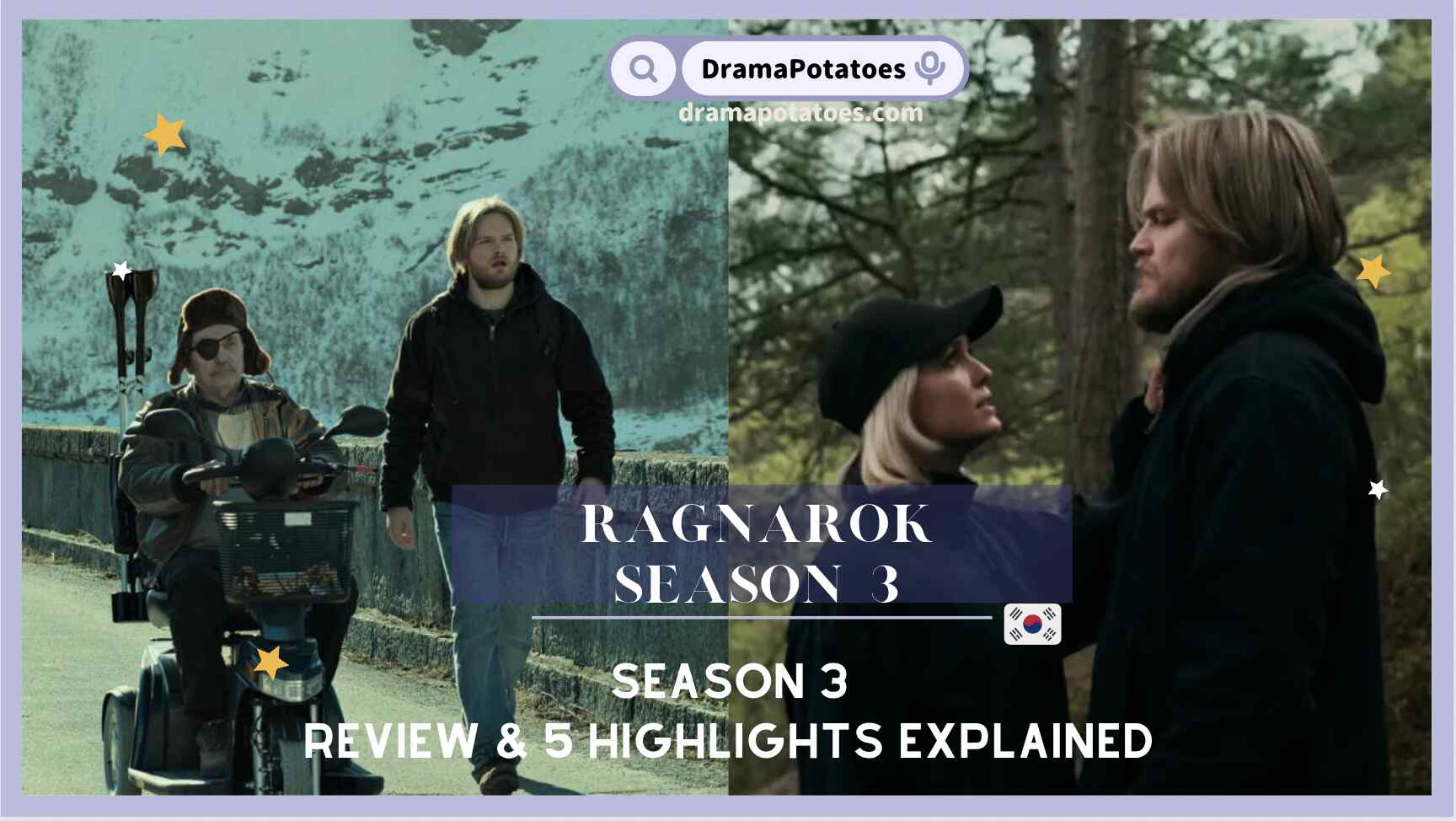
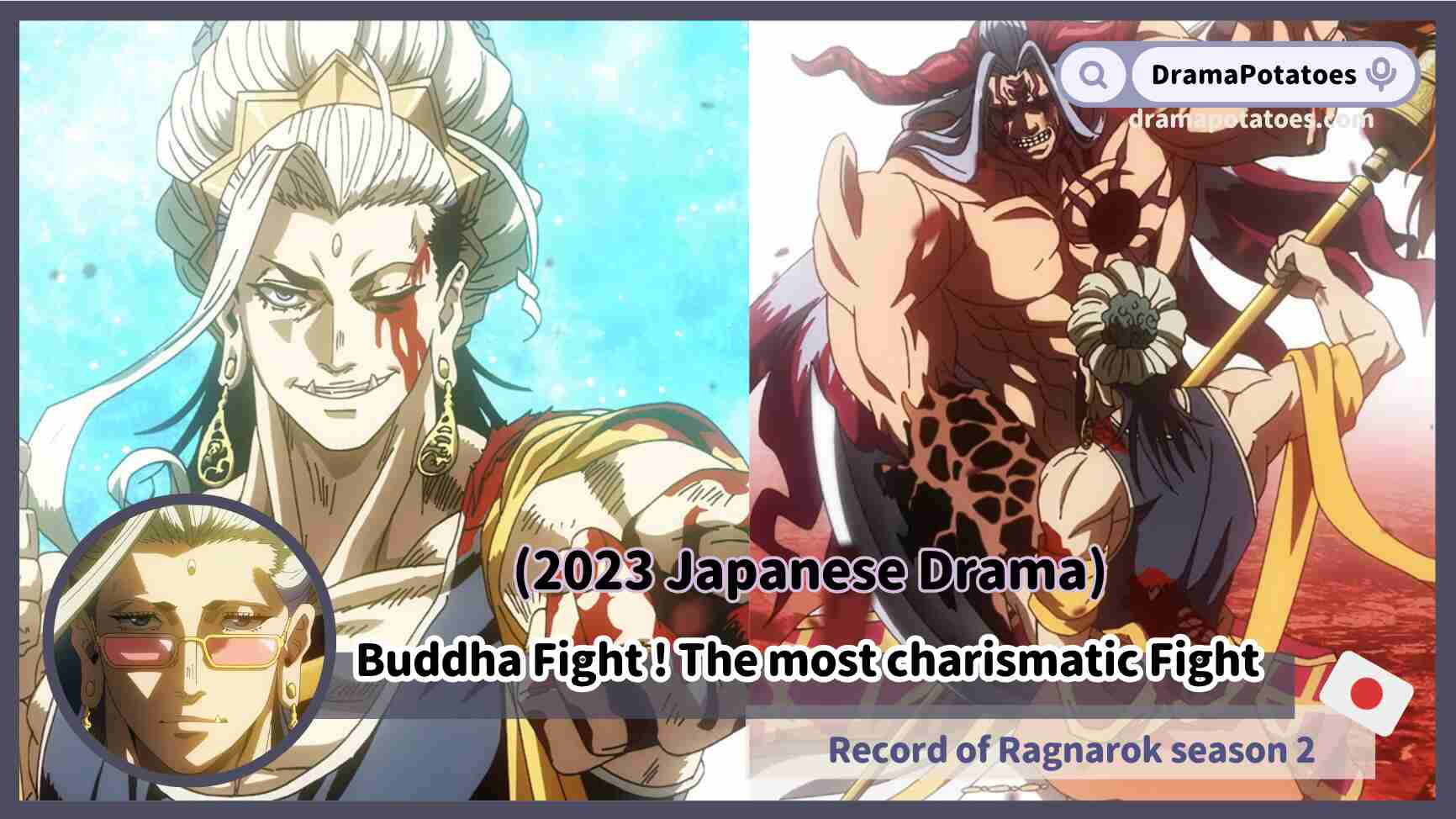



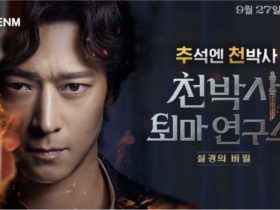










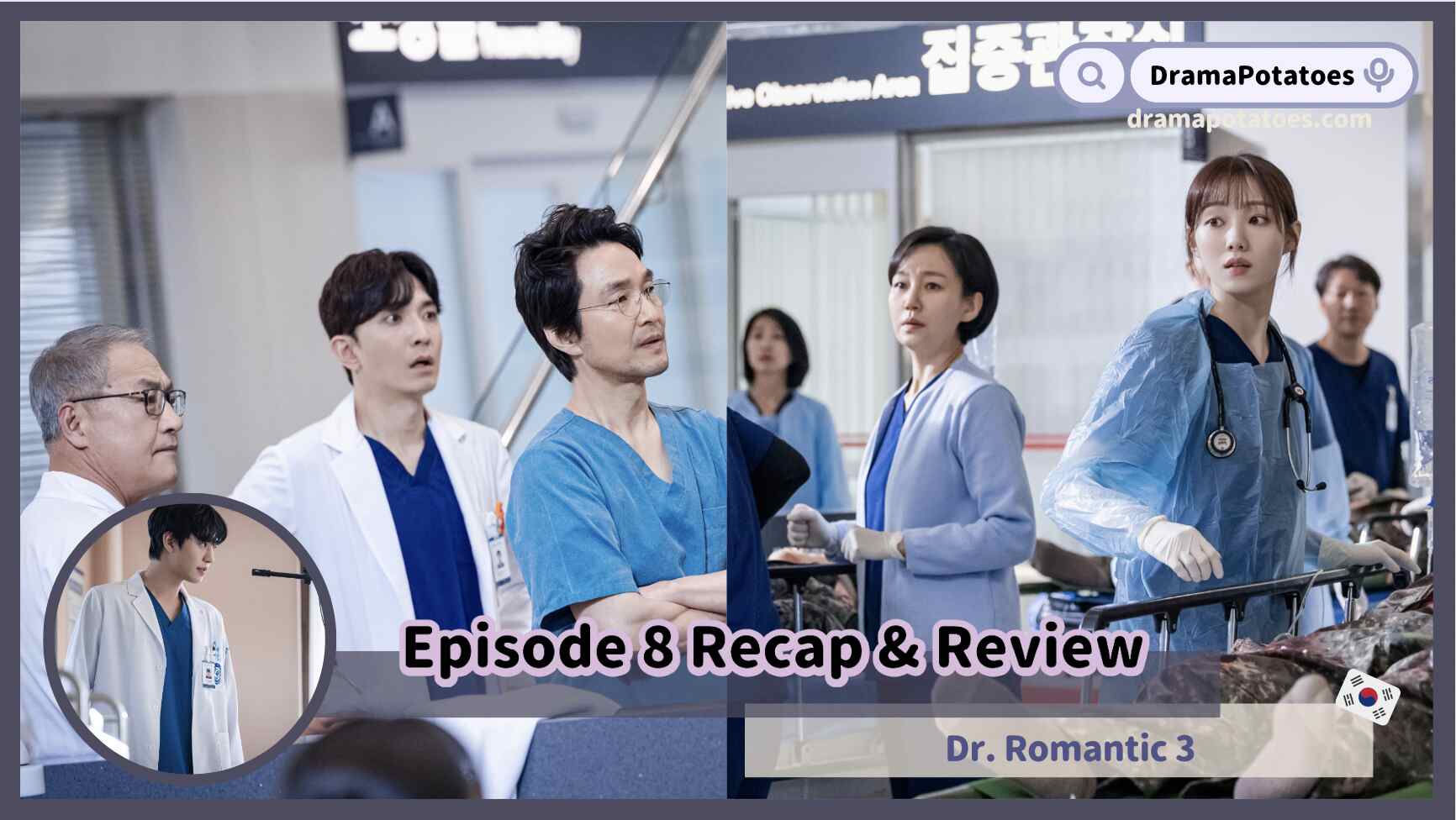
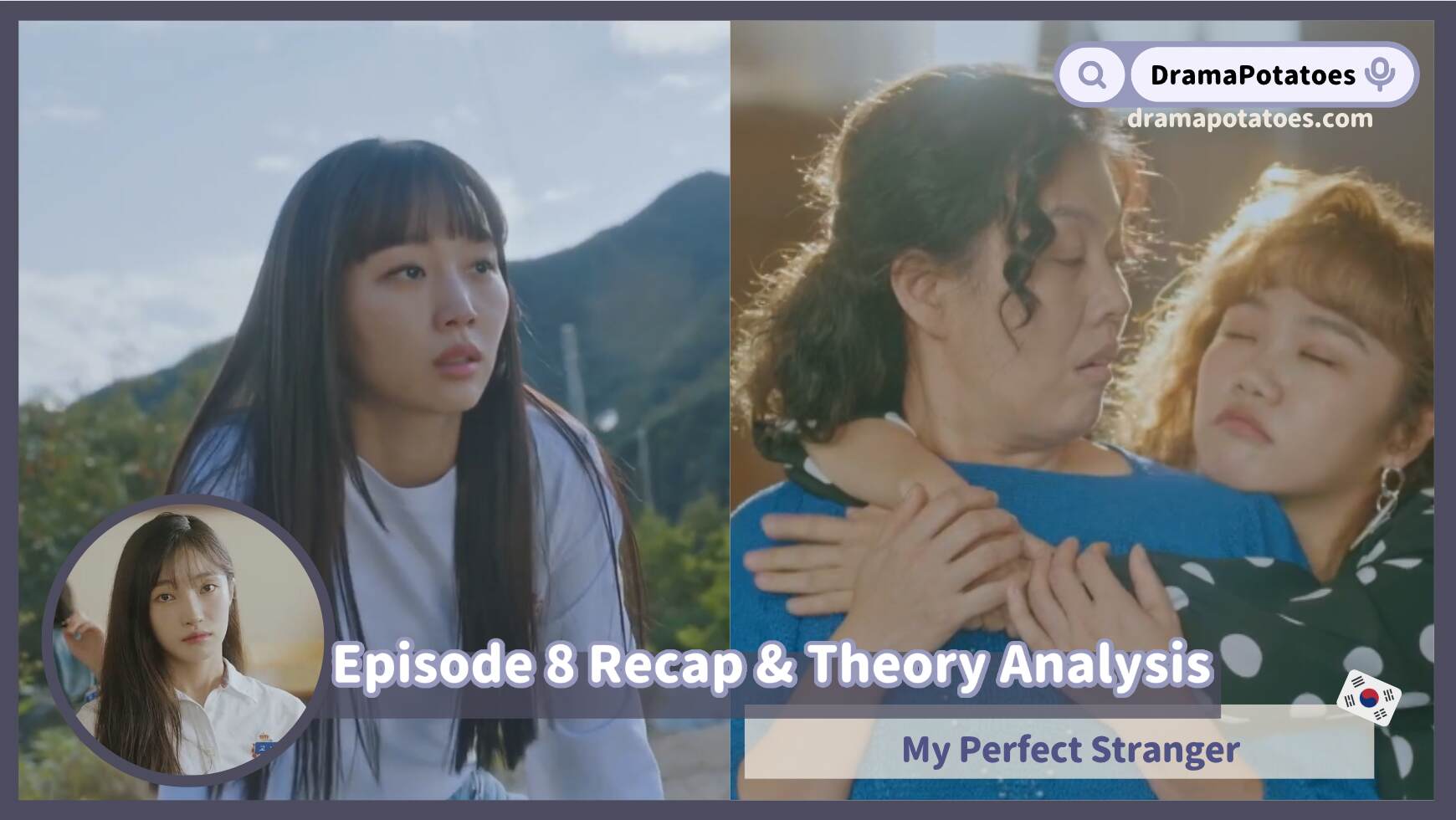

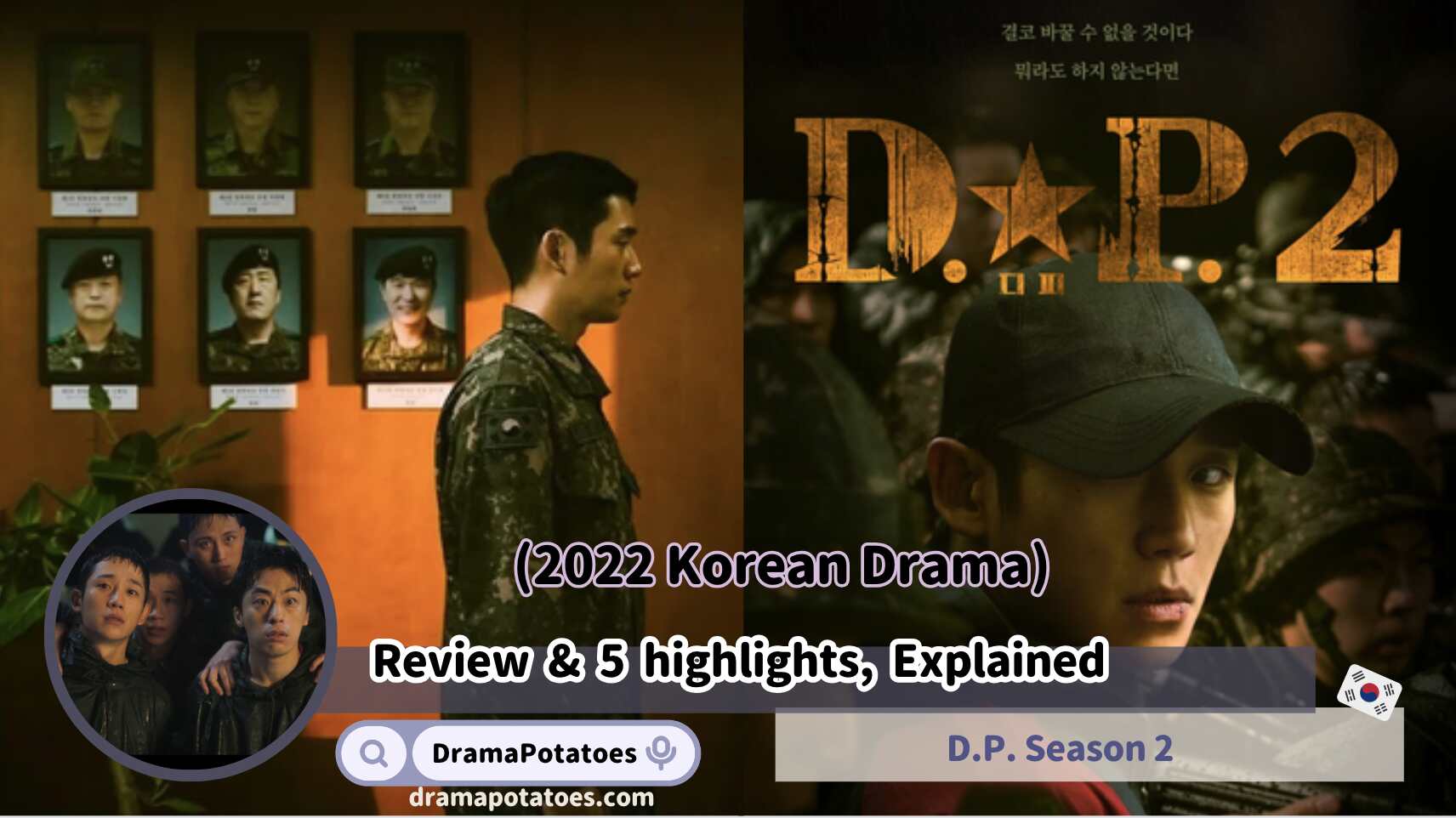


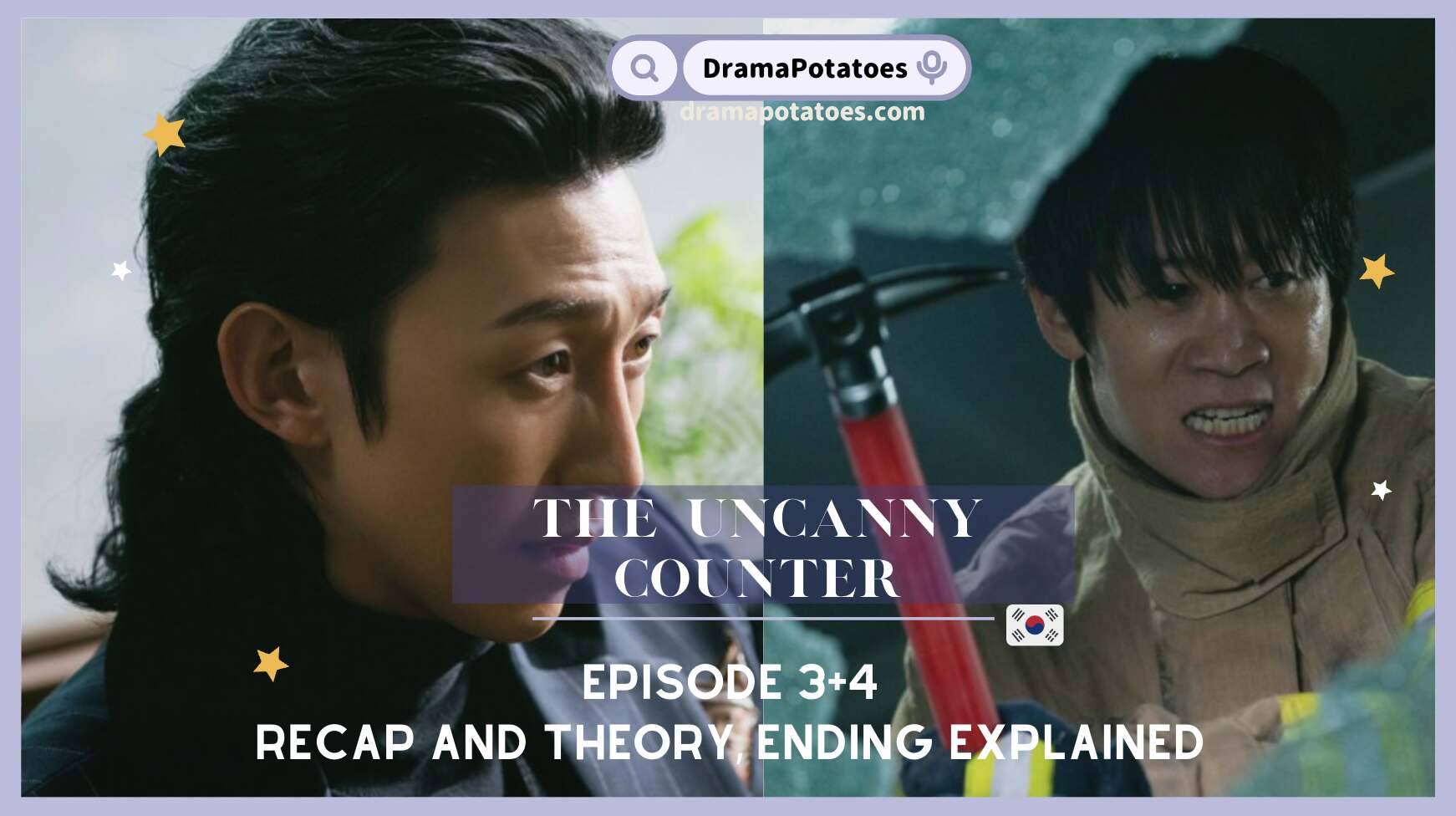

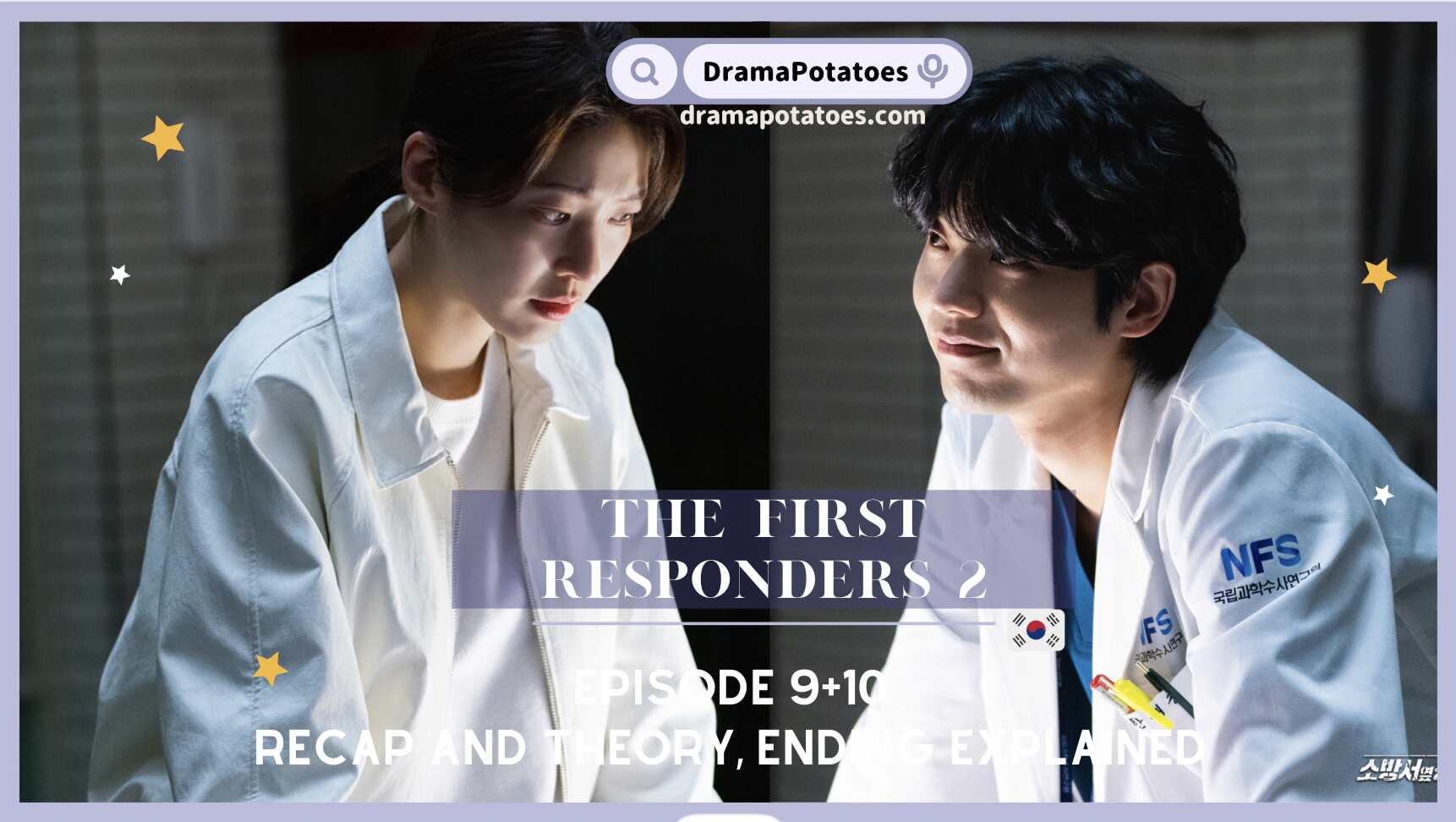
FIND US ON SOCIALS